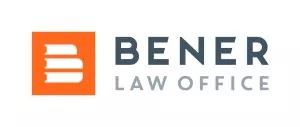Article by Emin Şanli
Preamble
The term "mortgage" herein – as understood in Turkish Law - is mentioned simply to describe a lien on a real estate securing any kind of loan or debt.
With both financial and real estate markets currently booming in Turkey, corporate lending institutions are keenly looking to lend funds to entrepreneurs and private investors (local and foreign) to buy and/or develop real estate projects. However, they obviously need security for such loans and the first preference is to place a mortgage on real property owned by the borrower.
In the past, creating a mortgage in foreign currency (USD, EURO, etc.) was not possible in Turkey. Nevertheless changes made in the Turkish Civil Code consecutively in 1990 and in 2001 allowed the placing of mortgage in a foreign currency, be it with some restrictions.
History
Until 1990, it was only possible to create a mortgage by recording a lien on real property in Turkish Lira.
However, the soaring inflation rates in the country (sometimes from 30 up to 90 % per annum) had a consequence of registering highly overvalued mortgages. As a result, this caused a borrower to pay high taxes and duties (costs of mortgages are linked to the value / amount of the registered mortgage) and prevented him from obtaining other reasonable loans with the same real estate at the same time.
As a result, as of 1990, mortgages recorded in a foreign currency to be used for foreign sourced loans (given by foreign financial institutions to either foreign or Turkish entities or persons) with a minimum term of five years, were allowed. Yet, this regulation still appeared not to meet in full the requirements to attract foreign investment.
Therefore, this issue was revised in the New Turkish Civil Code ("Civil Code") which was adopted under the influence of European Union Harmonization.
New Regulation
According to the Civil Code, there are two types of mortgages: one is a "capital mortgage" which applies to well defined debts or loans such as short, mid and long term banking loans (mortgage applies then to outstanding capital, interests and costs); the other is a "maximum limit mortgage" which applies to indefinite receivables or for receivables which will certainly arise but only for a value up to an agreed maximum level.
Both mortgage types can be filed with the government property records office ("TAPU office") stipulated in foreign currency provided that the following three conditions are met:
1. The Loans
The funds sought by a lending institution shall be given as a loan. The term of the loan can consist of cash loans, non-cash loans (e.g. letter of guarantee, counter guarantee, caution, etc.) and loans in kind (e.g. gold). The duration of the loan will not be taken into consideration.
2. The Foreign Currency
The loan can be configured either in a foreign currency or in Turkish Lira tied to a foreign currency. The mortgage recorded in foreign currency shall be linked using the same currency as the loan. The same rule applies to the loans in Turkish Lira that are tied to a foreign currency. For loans provided directly in Turkish Lira, there is no possibility to create a mortgage in a foreign currency.
According to the law, foreign currencies which are linked to the mortgage are restricted to the following foreign currencies which are circulated/accepted by the Central Bank of the Republic of Turkey: Australian Dollars, Canadian Dollars, Danish Kroner, Euro, Japanese Yen, Norwegian Kroner, Kuwait Dinars, Saudi Arabia Riyals, Swedish Kroner, Swiss Francs, UK Pounds and US Dollars.
3. The Financial Institutions
The loan shall be disbursed from a (foreign or local) corporate lending institution. According to a circular published by the Land Registry and Cadastre General Directorate, permissible local institutions include banks, private financial institutions, leasing companies, factoring and finance corporations. These institutions shall provide their certificate of authorization for lending money in the case of a mortgage placement in a foreign currency. Foreign lending institutions shall provide a relevant certificate which is applicable according to their national law.
|
LOAN |
MORTGAGE |
|
|
Foreign currency |
Must be |
Same foreign currency OR New Turkish Lira |
|
New Turkish Lira tied to foreign currency |
Must be |
Same foreign currency OR New Turkish Lira |
|
New Turkish Lira |
Must be |
New Turkish Lira |
The content of this article is intended to provide a general guide to the subject matter. Specialist advice should be sought about your specific circumstances.

